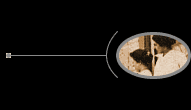


 |
  |
|
|
If Wisconsin teachers are able to educate voters, why are they not able themselves to cast ballots? If Wisconsin teachers are able to educate the boys who are to become voters, why are they not able to educate girls who may do likewise? |
|
|
There are 17,000 teachers in Wisconsin, of whom nearly 88 per cent are women. A Wisconsin mother has called women teachers and institutional workers "Social Mothers." Through force of circumstance these women acquire experience in dealing with boards of directors and other governing bodies, which gives them special preparation to take the larger part in civic life that suffrage involves. Mrs. Anna Garlin Spencer, of the New York School of Philanthropy, in a recent magazine article entitled the Spinster, speaks of "the staid teacher, upon whom is placed the heaviest public service borne by any class in the United States." Yet in only a few states is her social responsibility accompanied by the social power that the ballot gives. Who should have power if not those upon whom rests the heaviest responsibility? |
 Milwaukee Normal School 1912 |
|
Since 1900 Wisconsin women teachers have been seeing the effects of their own possession of school suffrage. They, probably less than any other large class of citizens, need to be shown the importance of the vote for women. The Wisconsin Teachers' Association declared last November for woman suffrage. C. C. Parlin, of Boston, former president of the Wisconsin Teachers' Association, said to the association, at the November meeting in Milwaukee: "The most important piece of school legislation, if it is ratified by the people at the referendum, is the act for woman suffrage. It will be a great day for education when women vote. Then indeed will pension laws for teachers, minimum salary acts, consolidated school district legislation, county board of education bills, and every act that looks to the betterment of the school, be readily passed; for the woman is intelligent enough to see the value of educational measures, and self-sacrificing enough to tax herself for the benefit of her children." To all this it may be answered, "the majority of women do not want to vote." But what if that be true? History shows that "it is suffrage that develops manhood, rather than manhood that develops suffrage." Why is womanhood unlike manhood in respect to suffrage? Already thousands of men and women in California agree with Dr. Aked of San Francisco, that "nothing else ever promised so much for the ultimate good of the race as the enfranchisement of women." OPINIONS OF A FEW AMERICAN EDUCATORS
Dean Denny
[of Ohio State University.] If full recognition is not the logical end, the granting of partial rights should never have been begun. Women should have been kept in complete subjection. Higher education should have continued to be denied, and the theoretical unity of every woman with some man should not have been invaded by the humane progress of legislation and legal interpretation. Logically the granting of partial suffrage calls for the granting of complete suffrage. Women have been educated up to the very point when the last prize is just before them, and it must not be denied. The statement of the British statesman applies with much greater force to the women of to-day than it did to any class before enfranchised. "A free government and a large number of people excluded from its privileges can not exist together."
Max Eastman
[Lately of the Faculty of Columbia.] It is not justice as a theoretical ideal nor feminine virtue as a cure for "politics," but democratic government as the practical method of human happiness that compels our minds. Compared to the variety of their (women's) needs and the subtlety of the disadvantages under which they enter a competitive system, it (the ballot) is a small thing to give them, but it is the first and manifest thing.
Fannie W. McLean
[Supervisor of English, Berkley High School, California.] We could bestow no greater gift upon the young woman of to-day than the ballot, and no greater gift upon society than the girl so endowed, self-reliant, self-poised, self-controlled, to be the comrade, the sister, the business associate, the wife, the fellow citizen, of the young man.
Frances Squire Potter
[Lately Professor of English, University of Minnesota.] The fathers of this country saw that education must be wide open and that citizenship must be wide open. These two things go hand in hand, and if either of them falls, our democracy collapses with it. * * *
M. Carey Thomas
[President Bryn Mawr College] Wherever women already vote, in the Australian Commonwealth, and in New Zealand, in Wyoming, Utah, Idaho and Colorado, in Norway and in Finland, their influence is felt immediately and persistently in ameliorative measures for the protection, reformation and education of children. We are now learning that children should be the chief concern of our present civilization, because in them lies the hope of the future. For the sake of the children, women must vote.
Cora Stranahan Woodward
[Claremont, Cal. Lately Dean of Women, University of Wisconsin.] I am watching the work in Wisconsin with great interest. I think I was born an equal suffragist, and it has always seemed to me that the burden of argument rested on the opponents of the movement.
Ellen C. Sabin
[President Milwaukee-Downer College.] I believe that women should have the right to vote as a matter of justice, and I think that conferring this right is also expedient. I expect to see that the responsibility of casting a vote upon local and national questions will be an important factor in the development of women. I think the direct power of the ballot in women's hands will express in great majorities views that are in support of the best interests of home and of society.
Carroll G. Pearse
[Superintendent of Schools, Milwaukee, Wis. President National Educational Association.] If the women of Wisconsin desire the suffrage, I see no reason why it should not be granted to them. Certainly with the desire for this privilege on their part, they will devote themselves to obtaining such information concerning public matters as will enable them to exercise it intelligently.
A. J. Hutton
[Superintendent Wisconsin Industrial School for Boys.] I have always been in favor of votes for women, and I am very heartily in favor of the passage of the proposition now before the people of Wisconsin.
H. L. Russell
[Dean of the College of Agriculture. University of Wisconsin.] I think that the placing of the responsibility of voting upon women will tend materially to educate them in matters in which they should have a direct personal interest. It is my hope in connection with this movement, that the women will avail themselves to the fullest extent of the franchise privilege, if it is given them.
W. O. Carrier
[President Carroll College, Waukesha, Wis.] I am deeply interested in the cause of equal suffrage; first, from the standpoint of justice. I know of no reason why man should have the ballot more than woman. She is as intelligent and competent. It is not a question of whether the majority want to vote, but every one who does should have the privilege. Second, I believe that with equal suffrage we shall have a better government. I wish the cause the greatest success and hope that it will win in Wisconsin, and I am glad to do what I can to help.
M. V. O'Shea
[Professor of Education, University of Wisconsin. Wisconsin Journal of Education.] It appears to us to be a monumental blunder to prevent any woman from voting who wishes to do so. We have heard all sorts and conditions of men talk against the right of women to vote, and it has seemed to us that the arguments they whipped together against suffrage were mere persiflage.
Rose C. Swart
[Supervisor Oshkosh Normal School, Oshkosh, Wis.] I have always been in favor of woman suffrage. I hope to see it an accomplished act in Wisconsin in November, 1912.
Mary D. Bradford
[Superintendent of Schools, Kenosha. President Wisconsin Teachers' Association.] I am a Suffragist: First, because I have been in professional life for a long time, and know from experience the handicap a woman suffers in her effort for advancement. Second, because the influence and forces that are detrimental to social improvement and progress are opposed to woman suffrage, and I can't affiliate with them. Third, because I know that the greatest stimulus to development in a human being is responsibility, and I want to see women brought under the influence of that stimulus, that the home and society may receive the benefit.
E. L. Richardson
[President Board of School Directors, Milwaukee, Wis.] The wisdom and justice of that provision of our law which gives to women the right to vote on all matters connected with our public schools is so obvious that it has become a fundamental principle in Wisconsin. To extend the franchise to all public questions is the application of this recognized principle to related facts and involves no radical change. There seems to be little real opposition to universal suffrage in this state and I believe the action taken this fall will be favorable. No one will claim that the Millenium will ensue, but surely any step taken pursuant to the demands of justice and fair dealing can be productive only of good.
Charles R. Van Hise
[President University of Wisconsin.] "The chief advantage of votes for women will be that once the privilege is given them, they will be compelled by public sentiment to exercise it; for the privilege carries with it a serious responsibility. This responsibility will make it necessary for women seriously to consider the many political and social problems that confront the voters. Therefore the women, once they have suffrage, will be compelled to assume a wider intellectual horizon. In short, it seems to me that the most important single thing to be secured by woman suffrage is the benefit to the women themselves." |
|